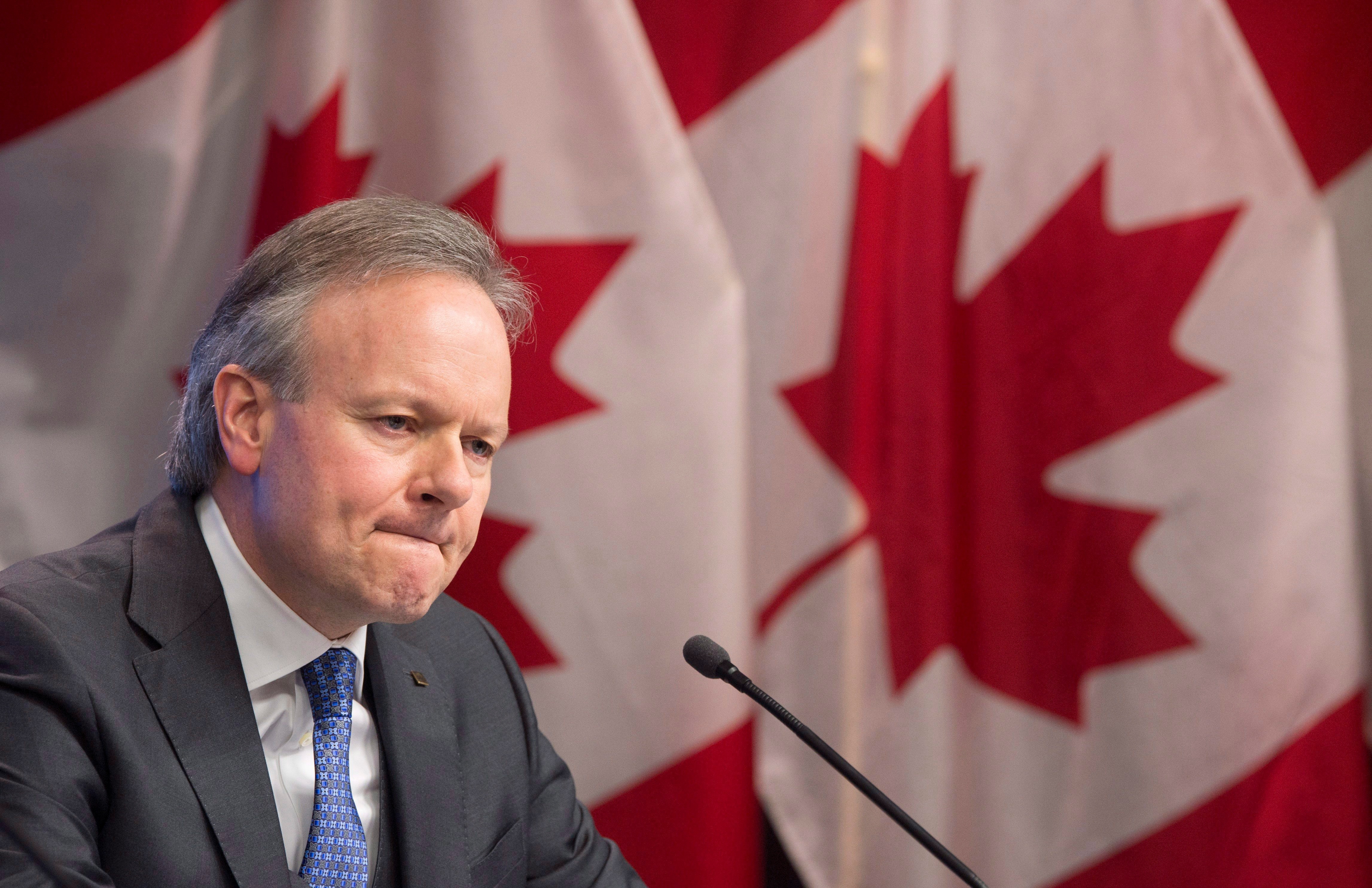Jan 17, 2018
Poloz: Debt levels make Canada far more sensitive to rate hikes
Bank of Canada Governor Stephen Poloz says record high household debt has made the economy far more sensitive to the effects of interest rate hikes than in the past.
The central bank increased its overnight lending rate to 1.25 per cent on Wednesday - the highest level it’s been since 2009 - following rate hikes in July and September.
“We know in our hearts and in our models that the economy will be more sensitive to higher interest rates today than it was 10 years ago,” said Poloz, in an interview with BNN’s Amanda Lang.
“It’s about 50 per cent more sensitive at these levels of debt, we think, than it was before,” he said.
Historically lower interest rates have fueled an almost-insatiable appetite for debt amongst Canadian consumers. According to Statistics Canada, the credit market debt-to-disposable income ratio reached 171.1 per cent in the third quarter of 2017, meaning for every dollar of household disposable income, there is $1.71 worth of debt.
Poloz says the central bank is very much aware of the impact rate hikes could have on the economy and debt-burdened Canadians.
- Lang: Economy may be stronger than ever, so why aren't rates rising faster?
- Rosenberg: Bank of Canada ‘done for the year’ with raising rates
- More Bank of Canada rate hikes coming? What economists and analysts are saying
MOVING ON UP: BANK OF CANADA RAISES RATES
“It’s a force acting on the economy that would prevent us from getting interest rates all the way back to what people consider to be neutral,” said Poloz.
“So yes, a heavily indebted household is a concern. We can do the arithmetic, we have the micro-data, we know,” he said. “So, we’re watching for those signs and people need to be thinking about how will they deal with a higher interest rate at renewal.”
Poloz says that’s why the bank’s monetary policy must remain accommodative, “in order to keep this thing where it is.”
The central bank governor also said high household debt was a key factor in deciding to toughen the mortgage process so that homebuyers would be in a better position to absorb an increase in interest rates.
Even so, the central bank has faced calls to curb Canadians’ appetite for debt.
"When it comes to consumer debt, you know what? We tell people to pay down their debt, we tell them to stop borrowing; but they keep doing it," said Gareth Watson, director of Richardson GMP's investment management group, in an interview with BNN Wednesday morning prior to the central bank's rate decision.
"And they're going to keep doing it, 'cause if you keep offering them free money - or I should say cheaper money - they're going to take it."
Poloz says he doesn’t think Canadians are under any illusions when it comes to debt, and believes as long as people properly prepare themselves for the eventuality of higher borrowing costs, then the impact should be somewhat minimal.
“I don’t think Canadians misunderstand debt. And I rarely meet anybody that’s surprised by hearing me say ‘you know interest rates are really low.’ They know.”
He also said people should think about what a 100 or 150 basis point increase in interest rates could mean for their finances.
“If you think about it and prepare for it, then I think it will be okay.”
WEIGH IN
